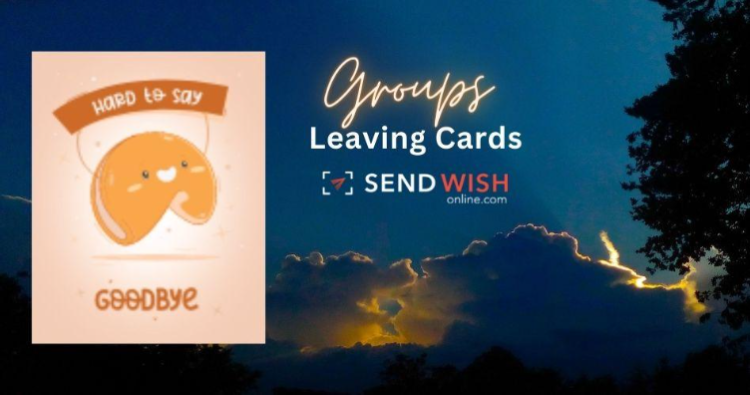As technology connects us more effortlessly, a handwritten note can feel outdated. However, leaving cards still carry meaning that electronic messages lack. While social media allows mass communication, receiving a card brings comfort in life’s transitions. In this article, I hope to share why keeping this small ritual alive matters.
Those who have received a card after a big change can likely recall the warmth it evoked. Opening an unexpected envelope to discover a friend’s well-wishes is touching. Unlike virtual congratulations that blend together, a card sits as a memento you can reference whenever needed. Its presence makes the sender feel nearer, even across distances. Some of my fondest memories involve cards from loved ones after major events. The graduation card from my grandparents with a sweet note inside is one I’ll never forget. Years later, I still have the card a friend gave when I moved—her words within lifted my spirits during lonely first weeks. These tokens weren’t extravagant gifts, but their impact has lasted far longer than any other acknowledgment. A little effort resulted in a treasure for the recipient—something we must preserve.
While technology allows mass messaging, cards maintain handwritten intimacy. Something about the imperfect curl of someone’s pen conveys warmth unlike typed fonts. Reading variations in their writing style, you can almost hear their voice through the page. Their physical imprint leaves a signature that elevates short messages. At a time when cursive disappears, keeping card-writing alive helps maintain this special communication between people. The personalization that comes from penning sentiments by hand imbues cards with a depth lacking from screens.
Some argue cards are wasteful, but their environmental impact is minimal compared to other disposable daily items. A single card won’t deplete resources, and could even utilize recycled materials. Many cards get saved rather than thrown out, so the joy of revisiting them through memories outweighs any small paper use. Their longevity makes cards a sustainable choice.
In a fast-paced world where interactions often lack depth, cards allow reflecting on milestones. Rather than fleeting posts, their presence permits revisiting feelings of gratitude, encouragement, and care whenever needed. Especially as loved ones disperse farther due to life changes, receiving a card is comforting. Their power lies not in extravagance but simplicity—a few lines of thought can stay with someone forever when delivered right. So the next time you need to say goodbye, don’t forget the impact a heartfelt card can make. Our world may change, but traditions like this show we don’t have to lose our humanity.
While technology has its advantages, it also threatens to diminish acts of personal care and remembrance. In a world where interactions are increasingly fleeting and impersonal, cards preserve human warmth and connection during life’s transitions. Their handwritten quality gives cards an enduring sentiment that other forms of communication lack.
For those experiencing difficult goodbyes, a card can provide comfort in challenging times. Saying farewell under stressful circumstances, whether due to illness, relocation, or loss, leaves many feeling unsupported. Receiving a card reminds the individual that others care about their wellbeing, even from afar. Revisiting cards years later also allows processing difficult emotions when ready. Their presence shows that even when a loved one can no longer be with them physically, a piece of their care remains.
Also Check Group eCards
Cards also play a role in maintaining traditions across generations. As technology advances rapidly, preserving rituals gives a sense of stability and roots. Growing up, I fondly remember receiving cards from elderly relatives on birthdays and holidays long after they had passed. Though the senders were gone, their cards kept cherished memories alive. By continuing card exchanges today, we pass this custom to youth as a demonstration of thoughtfulness. Kids especially light up receiving handwritten notes of encouragement or congratulations through the mail. Keeping cards relevant ensures traditions are not lost to the digital realm.
While convenient, technology should not replace all human interactions. Digital connections alone cannot foster the same feelings of intimacy, care, and nostalgia that cards cultivate. Their handcrafted quality makes cards a special remembrance. In an increasingly impersonal world where virtual interactions dominate, maintaining rituals like leaving cards preserves our humanity. Though simple, cards demonstrate that human connection and sentiment matter most during life’s milestones, even above what technology provides. Their power lies not in extravagance but thoughtfulness – a few lines can stay with someone forever when delivered with care through the mail. In prioritizing cards, we choose empathy over efficiency in how we commemorate the people and moments that shape our lives.
For those facing difficulties like illness, relocation for work or education, or dealing with loss, a card shows that others are thinking of their wellbeing from afar. Knowing someone cared enough to acknowledge their situation with a handwritten note can warm the coldest of days. Revisiting cards later allows processing complex emotions when ready, finding comfort that even separated, a loved one’s care remains.
Cards also play a role in intergenerational connections. As technology rapidly evolves, preserving traditions gives stability across the generations. Growing up, I fondly remember receiving birthday cards from elderly relatives who had long since passed. Though the senders were gone, their cards kept cherished memories alive. By continuing card exchanges today, we pass this custom to youth as a demonstration of thoughtfulness.
For children especially, receiving mail is a special experience. Their excitement at opening an envelope to find a handwritten note brings joy. Keeping cards relevant ensures traditions are not lost but rather experienced by new generations. In prioritizing cards, we choose nurturing human bonds over reliance solely on digital connections.
While technology connects people in novel ways, it cannot replace all human interactions. Digital relationships alone lack the intimacy, care and nostalgia that cards cultivate. Their handcrafted quality makes cards a meaningful remembrance treasured for lifetimes. In preserving small rituals like leaving cards, perhaps we preserve something more – our shared humanity.










